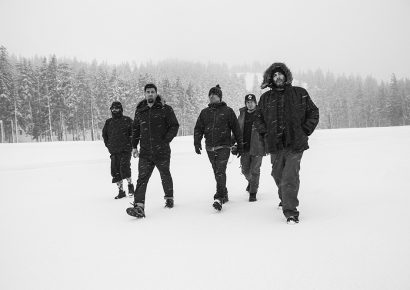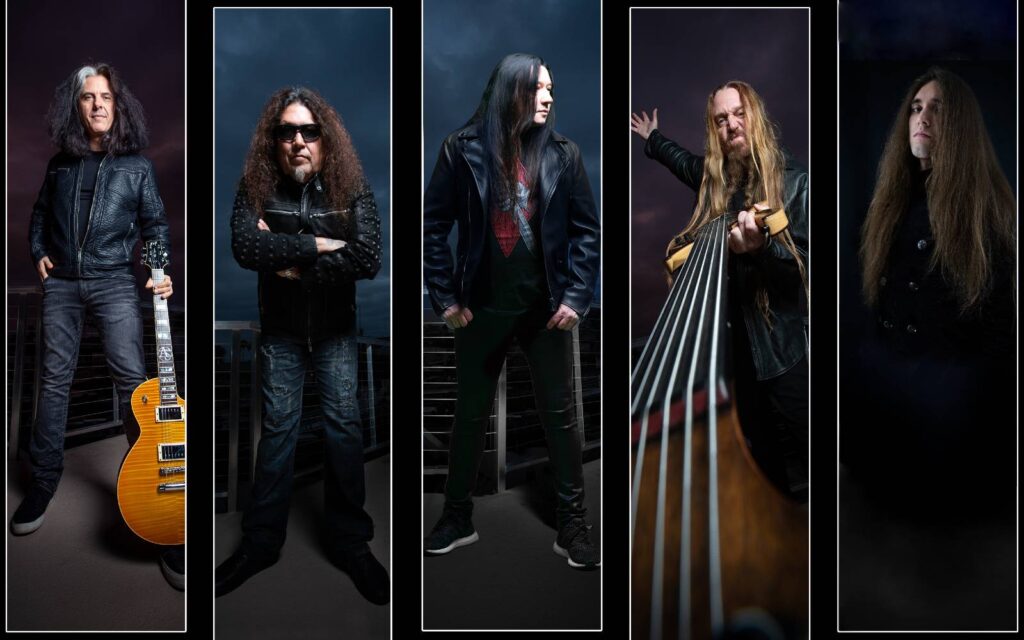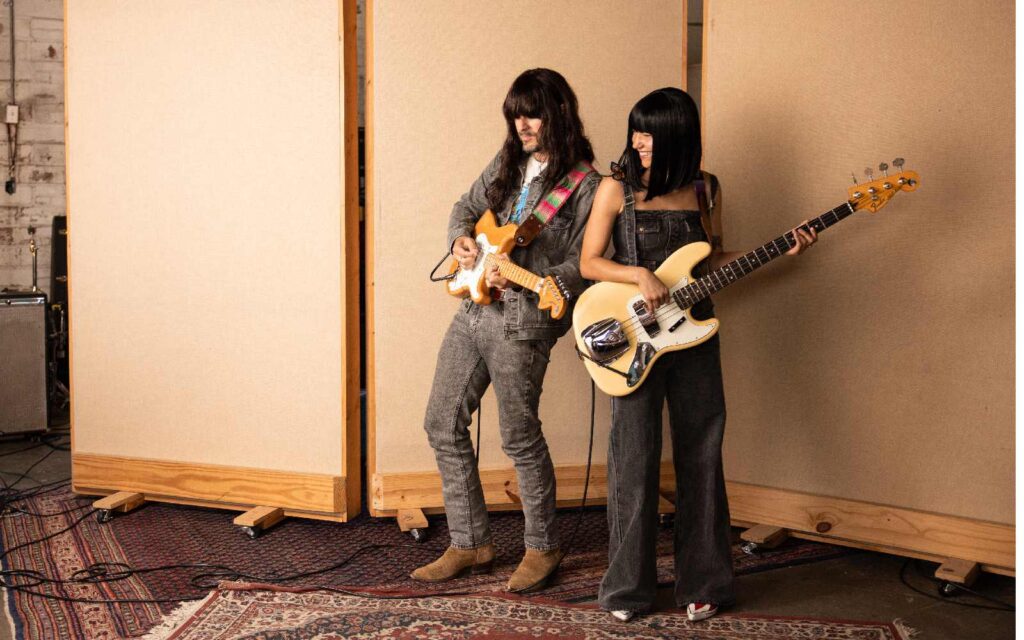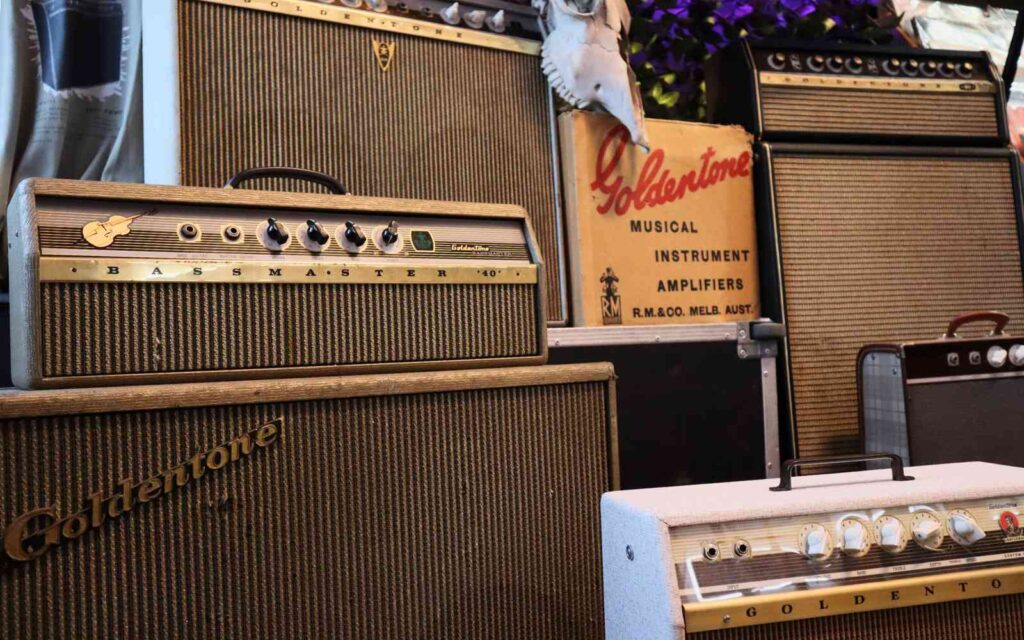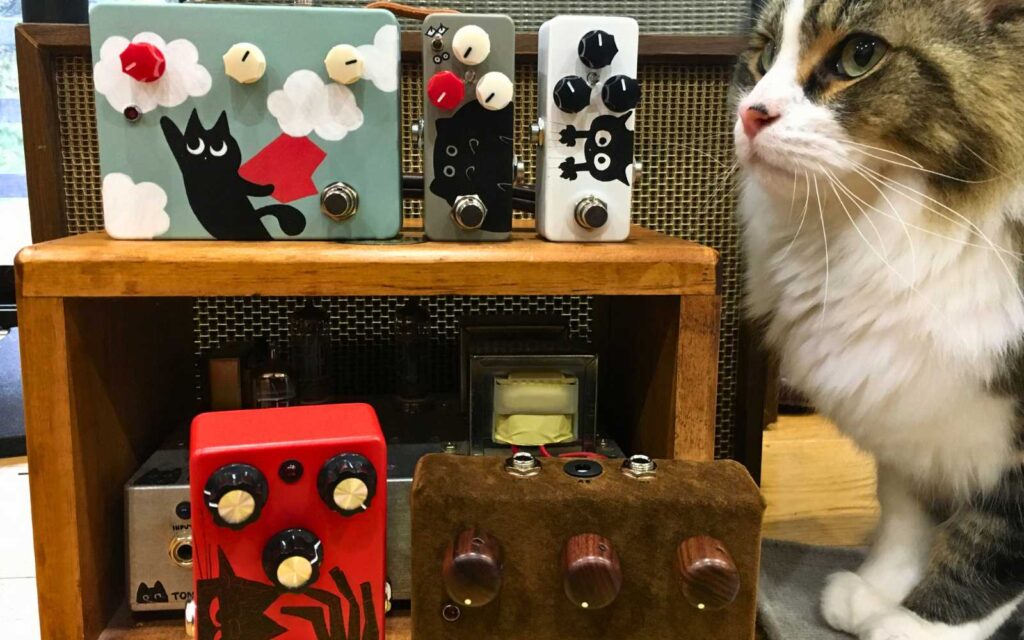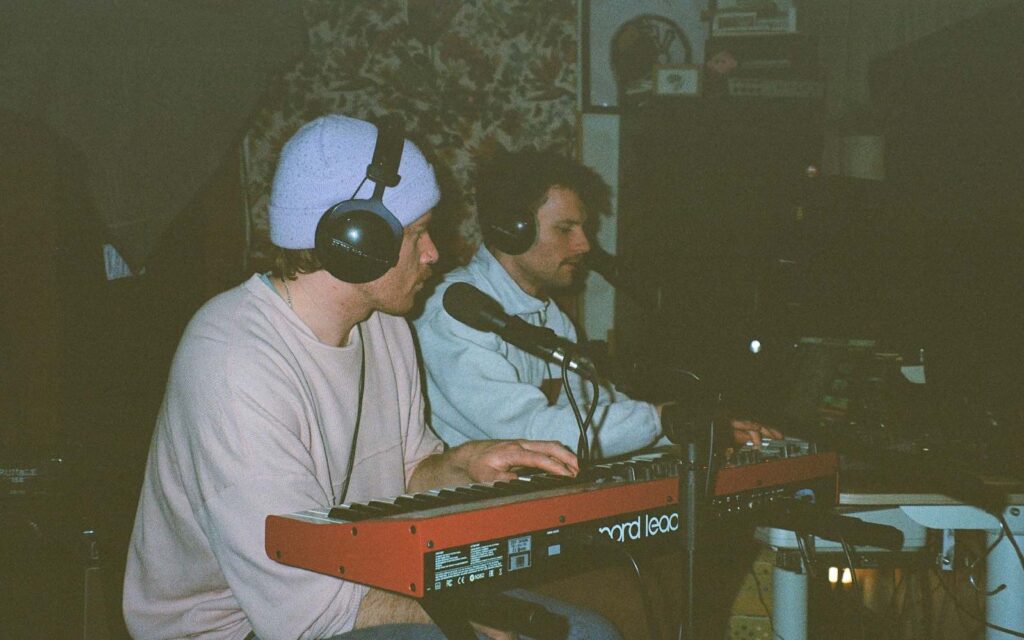In recent interviews, the band has explained that they aimed for Paradise to sound like a record for 2016. “I find a lot of rock bands in general look into the past, recording with all analogue gear and pretending they’re Led Zeppelin,” explains William. “We wanted to do something completely different to that and make it sound very unnatural and very modern. We approached it the same way that a lot of people record electronic music; we recorded a bunch of little parts and stuck them together without recording anything together as a band live off the floor at all. A lot of the song arrangements and structures ended up being a lot different to how we originally wrote them. We cut and pasted a lot of things, if someone had a new idea in the studio we could make it happen instantly.”
Marked by a competing interplay between William’s guitar and Mish Barber-Way’s vocal melodies and patterns, the band’s songwriting quality and chemistry on Paradise takes a step beyond the harsh onslaught of much of 2014’s Deep Fantasy, and introduces a new element of locking in together as a tight melodic unit. “Mish has gotten better at writing melodies, this is the best she’s ever done. Even though we try to make everything work together melodically, this album is unique as we both worked completely separately. With Deep Fantasy, we worked together in Los Angeles for most of the time. This time we actually worked completely separately with me writing in Vancouver and Mish writing in Los Angeles. We barely even worked in the studio together. I would go in and do guitar on my own for a few days, then Mish would come in and record her vocals. Working with Pro Tools we had the ability to cut and move things around a lot so there was never really any issue of things not sticking together in a way that worked.”
Deciding to focus more on the recording and technical production aspect of the album, the band enlisted the expertise of producer Lars Stalfors, known for his work with Cold War Kids, Alice Glass and HEALTH, among others. “He was really good working with Pro Tools and helping out with guitar pedals I used. He has a lot of great suggestions for gear that we could use to push our sound further. I’m not really much of a gear guy. Normally I’ve just used a distortion and delay pedal, but he had a lot of crazy equipment that we messed around with and got some interesting sounds.”
Uncommon for punk rock, William plans to take much of what was used in the studio to successfully reproduce such a dense sound live. “I’ve integrated a MIDI pedal and a sampler that I’ll be incorporating into our live show, so I can record samples and trigger them live with my guitar. In the past, I wouldn’t do many overdubs and double tracking on guitar, but Lars helped me achieve new ways of being able to play crazy new sounds live on stage. One of our rules as a band is that we won’t record anything that we can’t play live.”
Comparing Paradise to previous records, it is clear that the frantic speed, focus and energy has combined better than ever before with the band’s melodic aspect. Vocalist Mish Way-Barber has explained previously that “we just play pop songs, they’re just really fast,” and this methodology, albeit simplified, is a testament to the songwriting quality and musicianship of the band. “I think that it’s definitely a step up. I remember every time you finish a record, one of the feelings is that you can never imagine yourself writing another song. I feel like on this new record we definitely broke a lot of new ground, and I can actually see where there’s more areas now where we could go and try new things.” Looking beyond the new release and how the record fits into the White Lung discography, but also towards the album succeeding in his ambition to make a record that represents music and the band in 2016, Kenneth simply believes that “it’s exciting and I think it points to new ways we can write songs and push things forward.”
Paradise is set to be released on May 6th via Domino Recording Company.
For more details, head to whitelung.ca.

